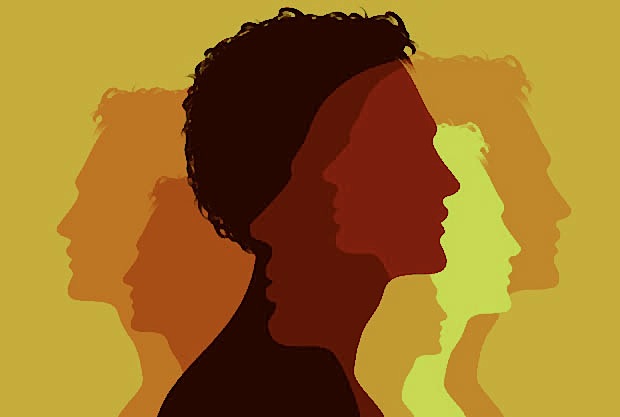Yom Kippur is the most sacred day in the Jewish calendar. Simply put, it is a day-long exercise in Reality Therapy. For 25 hours or so, the practice is to neither eat nor drink, nor make love, nor enjoy the comforts and conveniences of life – be it a shower or a smart phone – but to reflect and contemplate our mortality, to feel deeply there is no guarantee that we (or anyone in our life) will even be here tomorrow, to be on our deathbed but be fully conscious.
Have you ever held someone’s hand at the very end of life? I have held the hands of young and old, and in confronting the dearness of the vanishing moment, life becomes so much clearer: We realize we are all the same. Our passionately held beliefs and opinions become insignificant.
We are all hard and judgmental and kind and loving, scared and confident, weak and strong.
Yet today, we live in divisive society. Some portion of Americans seems bound by ideological extremes of right and left – stuck in their truth around what is right regarding God, religion, morality, sexuality, politics, war, terrorism, economics, education, healthcare, love, end of life?- all the myriad issues we’re yelling at each other.
But then, there’s a truth for what I believe is the majority of Americans – those who feel something is deeply wrong in our public culture, and are exhausted by the stereotyping, demonizing and polarizing in our media. We know that life is messy, that people are complicated and that, despite our radically different worldviews, we can somehow understand each other.
It’s time to take back our country’s public conversation. It’s time we begin to embrace complexity, nuance, uncertainty and time to listen carefully to each other in order to discern the partial truth of the views with which we disagree. Not because every view is equally true, but because every view is a product of some legitimate fear or hope, anxiety or yearning, dream or nightmare.
The fact is, we barely know ourselves, yet alone other people. None of us fit neatly into the ideological boxes and labels that become so comfortable and no beliefs – however strongly we hold them – lead to promised lands. We are all hard and judgmental and kind and loving, scared and confident, free and bound, lonely and connected, strong and weak, cowardly and courageous, loyal and betraying, seekers and dwellers, sinners and saints, believers and doubters, na?ve and cynical, ordinary and unique, – and we all have a gap between what we profess to believe with all our heart and how we act. There is a “too much”-ness to our psyche that cannot be cleanly packaged. Because we know the rug can be pulled out from under us at anytime – religious and secular alike, atheist and theist, liberal and conservative, hawk and dove, traditional and modern, fundamentalist and pluralist – we hold our lives together in perplexing permutations: inconsistency, incoherence and hypocrisy are actually the norm. We need to love that which is strange within us so that we can love the stranger. If we are to repair our culture and our politics, we need to embrace this sacred messiness and make forgiveness for self and others a practice.
We are not the ideologies, theologies, creeds or dogmas we profess so as to get us through the night. We are mothers and fathers, sons and daughters, brothers and sisters, lovers and friends, neighbors and citizens holding for dear life in the face of our finitude. We’re embracing each other, sometimes enraging each other and sometimes catching each other across great divides as we are swept up in the whirlwind of life.
I honestly do not know if, as every wisdom tradition teaches, love vanquishes death. But I do know that our humanness, our vulnerabilities, trump our ideologies. I know that love leavens the purity and logic of our beliefs, propelling us to connect as the fiercely gracious human beings we are. And I am pretty damn sure that certainty is the enemy of compassion.

Rabbi Irwin Kula is a 7th generation rabbi and a disruptive spiritual innovator. A rogue thinker, author of the award-winning book, Yearnings: Embracing the Sacred Messiness of Life, and President-Emeritus of Clal – The National Jewish Center for Learning and Leadership, he works at the intersection of religion, innovation, and human flourishing. A popular commentator in both new and traditional media, he is co-founder with Craig Hatkoff and the late Professor Clay Christensen of The Disruptor Foundation whose mission is to advance disruptive innovation theory and its application in societal critical domains. He serves as a consultant to a wide range of foundations, organizations, think tanks, and businesses and is on the leadership team of Coburn Ventures, where he offers uncommon inputs on cultural and societal change to institutional investors across sectors and companies worldwide.

